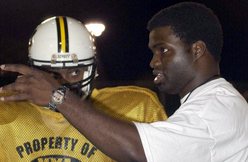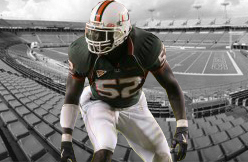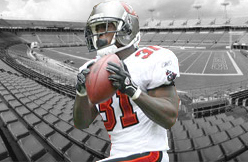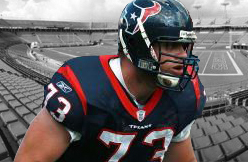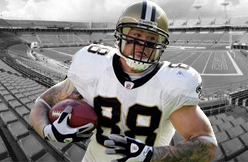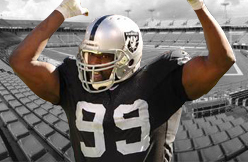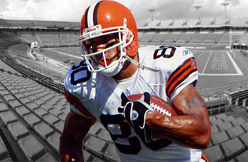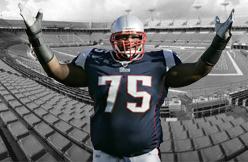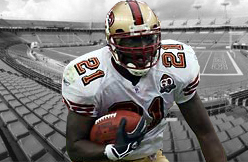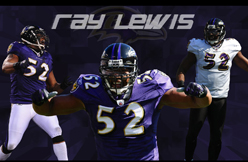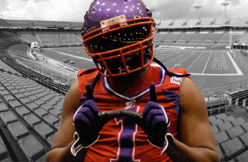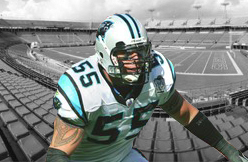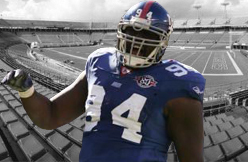Eric Winston has been a cornerstone on the Texans' zone blocking offensive line since his rookie year in 2006. Winston was taken in the third round as part of Gary Kubiak’s inaugural draft, a class that has been described as one of the best classes of any team in the last decade. Yesterday Eric discussed with me a myriad of Texans issues, including his latest media endeavor, the current status of several Texans players and expectations for the 2009 season. I think you’ll enjoy his candor and insight.
TT: Today I’m lucky to be talking to the great right tackle of the Houston Texans, Eric Winston. Eric, thanks for giving us a couple minutes of your time.
Eric: No problem. Thank you.
TT: Since you’ve been with the Texans, you’ve had a reputation of being open and providing a great interview, but you recently took that to the next level by starting your own blog for the fans, Ericwinston73.com. You obviously weren’t hurting for fame or fortune, so what was the inspiration for the site?
Eric: It was just something that I was asked if I was interested in. A couple of friends have blogs, and I thought “Why not?” It’s really picking up speed. In the beginning I didn’t really think I’d be doing much but I’ve really been keeping track of it. I’ve been adding links to any sites that are news related with the Texans. It’s been a lot of fun, and it’s been nice to let people know what’s going on.
TT: Well, it’s absolutely great for fans to get insight from players on what’s going with their team. What direction do you see the site taking in the future, especially once the season starts?
Eric: We’re actually still kind of debating that. Videos are something that I think we’re really going to start taking advantage of, especially when the season starts and time is tight. I’m not the best typer in the world (laughing), so sometimes it’s easier for me to speak into the camera. So, in the middle of the season I’ll be doing some video blogs before and after games; also in the middle of the week, giving my opinion on who we’re up against and what we have to do to win. It’s not something that I see a bunch of people doing so I wouldn’t mind being a trailblazer in that aspect.
TT: The feedback that I have received from Texans fans is that they really appreciate what you’re doing. One thing that definitely impresses me about the site is your honesty. In your draft recap for instance, you admitted that the selection of Antoine Caldwell in the third round surprised you. Is that because you didn’t feel that an offensive lineman was that great of a need for the Texans or because you thought there was greater need elsewhere?
Eric: It was just a surprise but I definitely feel that there is a spot on the line for competition to be had. We have some backup linemen that are unproven, like Kasey Studdard. Chris White, who we call Catfish, is the same way, just unproven a little bit. When they are unproven, I think you have to say that all five of us are doing something. We started all 16 games last season, so we just didn’t give them the chance to prove themselves.
I just thought that we would go in a different direction there--either stay defense or go with a running back; that was just my opinion. Obviously they felt pretty strong about Caldwell and that he’d be a good player at this level. I like to think you can get some good players in the third round and I have no problem with Caldwell, I just thought at the time that we’d go in a different direction.
TT: Speaking of drafting an offensive lineman, your story of Draft Day back in 2006 that you posted was both entertaining and insightful at the same time. Given that the biggest concern that teams had about you at the time was durability issues and you’ve remained so consistent since you were given the opportunity to start, do you feel like you’ve vindicated yourself?
Eric: In a way I have, but in another way I won’t have fully vindicated myself until the end of my career. Every day I go out there and try to prove myself. There’s always someone you have to prove yourself to, but at the end of the day the person I really have to prove myself to is me. I have to prove to myself that I’m the best guy out there, that I can play my position better than anyone else on my team can. I go out there every day to prove to anyone that’s watching that I can do that. That’s my main motivation; that’s what keeps me going. That’s how competitive I am, that I prove that the coaches have me in the right spot ahead of everyone else. At the end of the day, there are 62 other pros on the team and there are other guys that want that spot. You have to prove to everyone whether it’s the coaches or the G.M. that you belong there. I think once you become a starter it brings a lot more pressure to prove that you belong, and that’s what I go out every day to do.
Being drafted having durability issues, I haven’t gotten hurt, knock on wood, but a lot of that is luck and a lot of that is knowing where to be and not being in the wrong place. Accidents happen though; that’s what happened with my knee. It was a freak deal. I got rolled up on and it could happen tomorrow. I go out there knowing that every day could my last so I play as hard as I can and hope for the best. That’s all I can do.
TT: You also stated that you were lucky to have ended up in Houston because you and your family like it there but also because you fit well in the system. Why do you think you’re well suited for a zone blocking scheme?
Eric: I think it goes back to my tight end days and how I came up. I always played in offenses where the linemen always pulled or trapped, which puts a premium on athleticism. It really gives me the opportunity to do what I’m good at. Some guys are good at mauling other guys, some guys are good at pulling and trapping and some guys are just really strong and are good at standing guys up. I feel that one of my best advantages is getting out and running with linebackers, chasing people down, cut off the backside, and being able to really stretch the defense and open up holes and cutbacks for Steve [Slaton].
If I would have gone somewhere else to a power team, I feel like I could have adapted to any situation that I was in. In the end, I feel that this is a place that can get the best out of me and let me play as best I can.
TT: As you alluded to, you were recruited to play tight end out of high school in Midland, Texas but made the switch to offensive tackle early in your career at the University of Miami. This seems to be a conversion that happens frequently today in college football. Why do you think prospective tight ends are so adept at playing tackle?
Eric: I think it’s because of what tackles are asked to do these days. You’ve also got a lot of kids that just outgrow themselves. That was my situation. I just outgrew the position. When I got to college, I was lifting five times a week and just got too big for tight end. That happens with the bigger tight ends.
It’s also the way that offenses have evolved now. In the old days, you had bigger tight ends that blocked most of the time and occasionally caught passes. Now you have tight ends that are split out and you have to be more athletic. I think tight ends are naturally better at being athletic and being nimble on their feet if they’re not carrying the extra weight.
TT: You were given the opportunity to take the starting role on the right side of the offensive line your rookie year, which is what happened last year on the left side with 2008 first round draft pick Duane Brown. How would you rate his play from last year and what do you expect from him this coming season?
Eric: The thing that I like about Duane from last year is that he got better every game. I saw a guy that kept improving. He started out slow, just like every rookie does. I started out really slow. I think the key to this league is to keep improving and not rest on your laurels. Don’t think that you’ve made it, because as soon as you do that, you stop getting better and someone is going to pass you by. That’s what I liked about Duane last year.
I think that the big question with him is can he start where he left off. He left off as a pretty good player. He’s going to have to come back to that and not wait until midway through the season to be that guy, he’s got to be that guy from game one. I think that’s what everyone is expecting of him. He’s got a ton of ability, and a knack for playing this game. He’s going to have to show up and really have the thirst to keep getting better, and I think if he does that he’s going to be a great player.
TT: Two of your teammates from the same draft class, DeMeco Ryans and Owen Daniels, have stated desires for new contracts, as well as cornerback Dunta Robinson. Can you give us any insight into their respective situations?
Eric: I know I would be doing the same thing if I was in their situation. Luckily enough I was extended at the beginning of last year, but if I hadn’t I would be in the same situation as Owen Daniels. We had the same kind of contract. I don’t blame them. This is a game, like Dunta knows, where your career can change in a second. We’re not going to play until we’re 45 or 40, so our earning power is such a finite amount of years. You have to be able to make the money that most people make at their peaks when they’re 45 or 50 years old. This is our job, this is what we’re going to be best at for the rest of our lives, and we’re never going to be able to earn this amount of money going on and doing other things. We have to make our money now and strike while the fire is hot.
I don’t blame these guys for wanting their contracts, especially a guy like DeMeco Ryans, who has really outplayed his. Here’s a Pro Bowl middle linebacker who makes the minimum...he’s obviously outplayed his contract. I know that we have plenty of money to sign these guys, so I’m expecting them to get signed.
TT: You were an anchor in a powerful offense that finished 3rd in yardage gained last year, but only 17th in scoring. In your opinion, what needs to be done this year to capitalize better in scoring opportunities?
Eric: First of all it lies on the offensive line. Any time that fingers start pointing I look at myself and my fellow linemates and say, “What can we do better?” I think running the ball in the red zone is number one. We have to be able to pick up first downs in tough yardage situations inside the 20. We have to protect better on third downs and when the other team knows we’re going to throw. We have to give Matt Schaub some time to get rid of the ball and get it where it needs to be either for a touchdown or a first down. I’m not going to say anyone else could do this or this; up front is number one. If we can play better up front in those red zone areas we’ll be fine, and everything will fall in line.
TT: On the subject of Texans quarterback Matt Schaub, he has taken some criticism from the likes of Peter King and Michael Lombardi recently, as they have criticized his durability and his leadership. What is it that you think that national writers underestimate or don’t understand about Schaub?
Eric: Guys lead in all different ways, and no way is right or wrong. You’ve got guys like Brett Favre that jump around and are really excited. That’s great; hat works for Brett Favre. Then you have other guys like Peyton Manning that are calm and real collected that just go out there and take care of business, and that’s good because it works for him.
Matt has his own way about going about things. Any guy in one of our players meetings would tell you the same thing I’m about to tell you: He’s really well liked and respected because we know he’s going out there and giving 110 percent of what he can do. Schaub last year tore his MCL. The year before he separated his shoulder. It’s not like he’s just not playing through bumps and bruises. I have problems when people say durability issues. You know, I was labeled with that coming out of the draft because two guys fell on my knee and tore a bunch of ligaments. I had never been hurt before that, but all of a sudden I had durability issues.
Everyone forgets that he’s only had two seasons as a starter. He’s coming up on year three, and now he fully understands the offense, he fully understands everything that Coach Kubiak wants him to do in any given situation. Let’s see what he goes out and does this year and in year four, and then I think it will be really fair to say “Okay, this guy is our leader. This is the guy that’s going to lead us to the Super Bowl.”
TT: Speaking of Peter King, now that the draft is over, most NFL writers are switching their focus and their predictions to the upcoming NFL season. In a recent column written by King in which he lists all 32 teams in a series of power rankings, the Texans are listed behind twelve other teams, including the Colts and the Titans. Do you think that 13th overall and 3rd in the AFC South is where the team should be considered right now?
Eric: Yes and no. I feel like we can beat anybody we play. At the same time, I think those power rankings are based off what you’ve done. The old adage is, “To be the best, you have to beat the best.” We haven’t quite done that yet. We beat Tennessee but we have to do things like go into Indianapolis and get a win. We have a tough road game going into Arizona and we have to find a way to win that game. It’s those little things that are going to get us over the hump and into the playoffs.
We have the makings of something special, but we have to do those little things. We’ve been 6-2 at home the last two years but we easily could have been 7-1. We have to go out there and figure it out on the road. I think you saw that last year with winning in Green Bay and going into Jacksonville and giving them our best shot. We know we can go out there and win. Even the loss against Indianapolis, as heartbreaking as it was, gave us the confidence to know that we can go in there and play with anybody in any place. That’s what has really built our momentum for this year.
TT: Eric, I really appreciate your time today but moreover, I appreciate the insight that you’re giving fans over at you blog. Good luck in both the OTAs and the upcoming season.
Eric: Yeah, please don’t hesitate if you need anything down the road or want to do anything else.
Overall, the entire interview process with Eric impressed me, but the one answer that pleased me more than any other was his claiming responsibility for scoring in the red zone. The truth is probably that a multitude of factors led to the problems inside the 20 yard line for the Texans last year, but the fact that Eric is only worried about what he and the offensive line can do speaks volumes. It’s also good to know that our enthusiasm and expectations for the coming season are shared by the players themselves.
(battlerblog.com)


